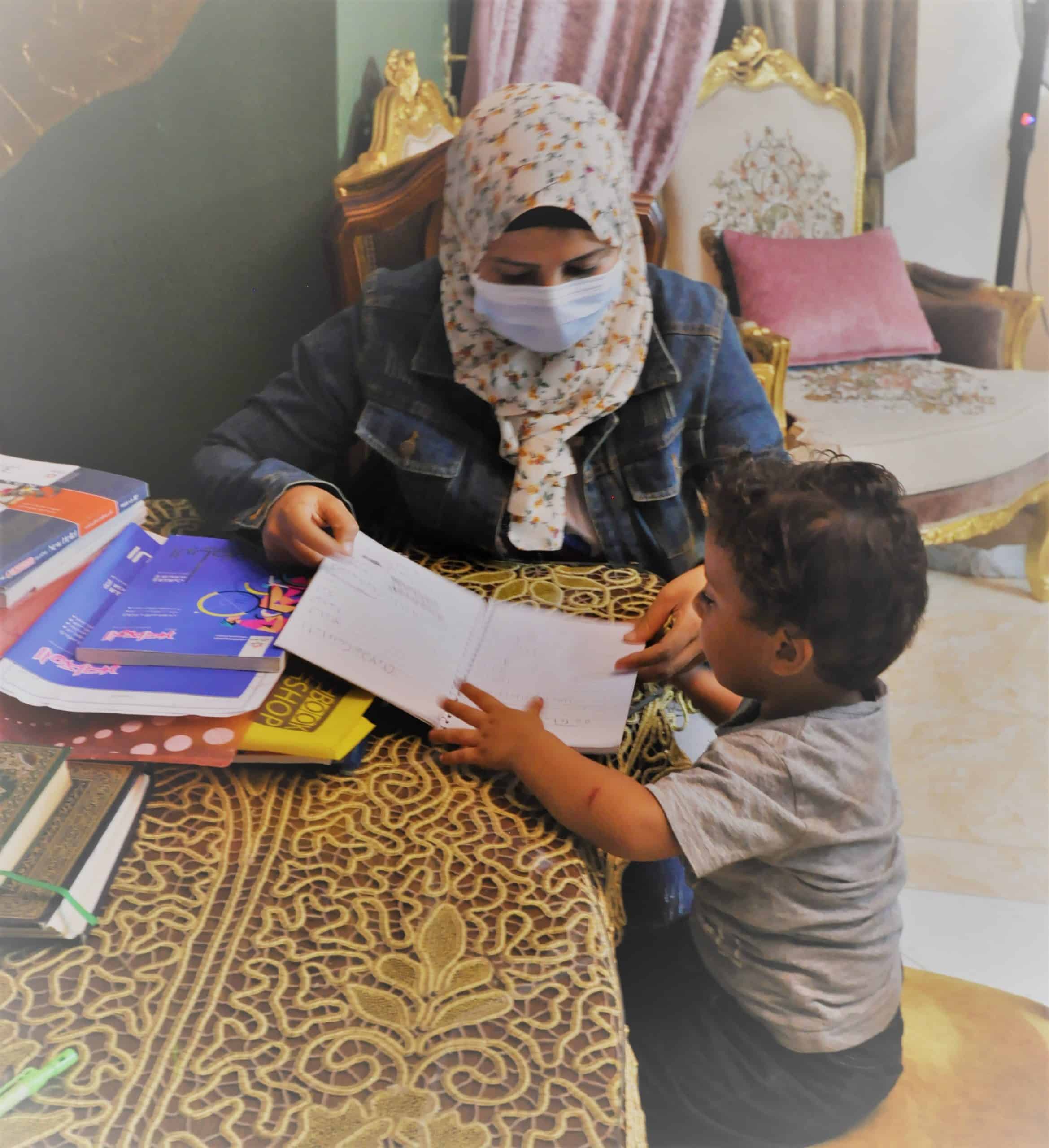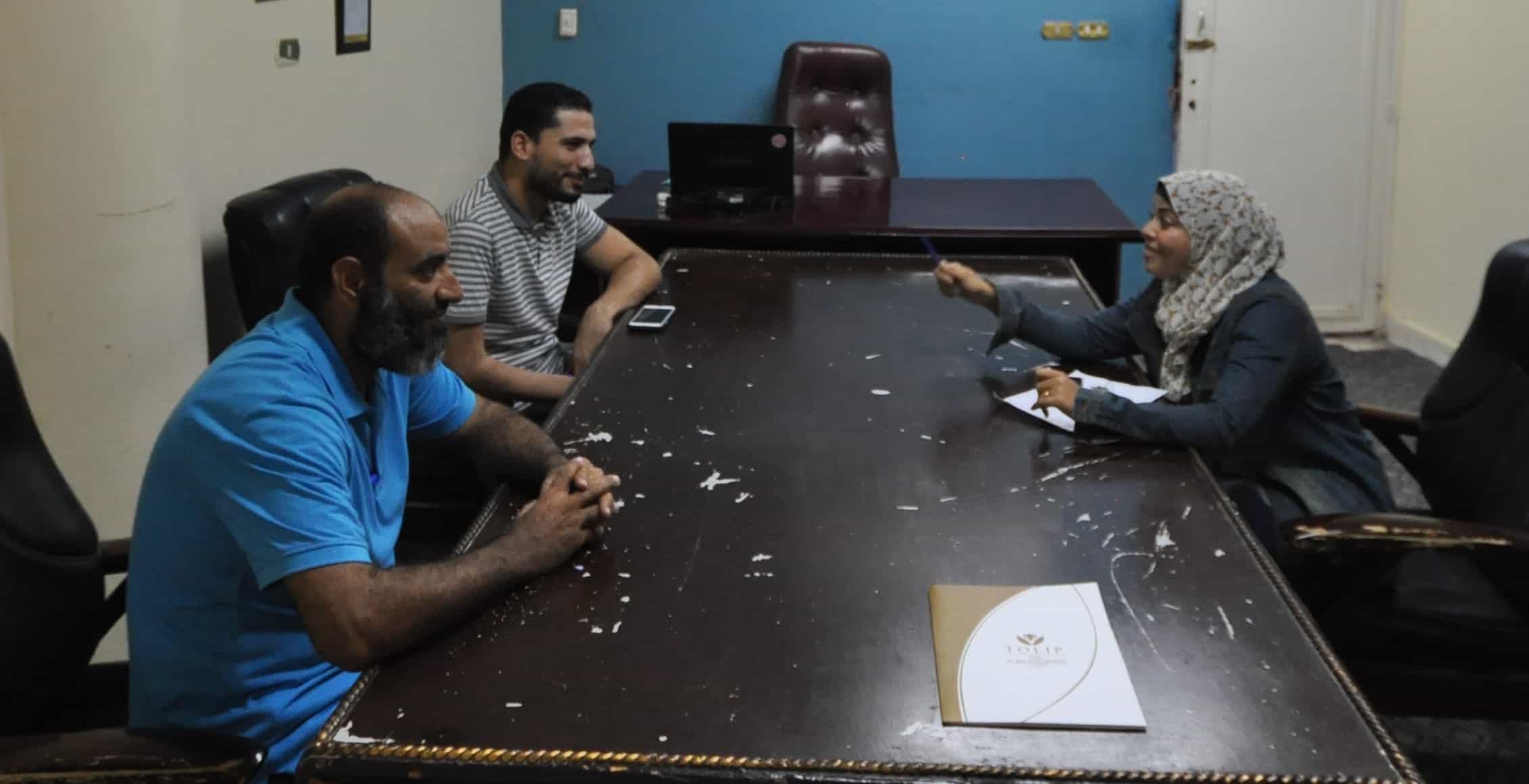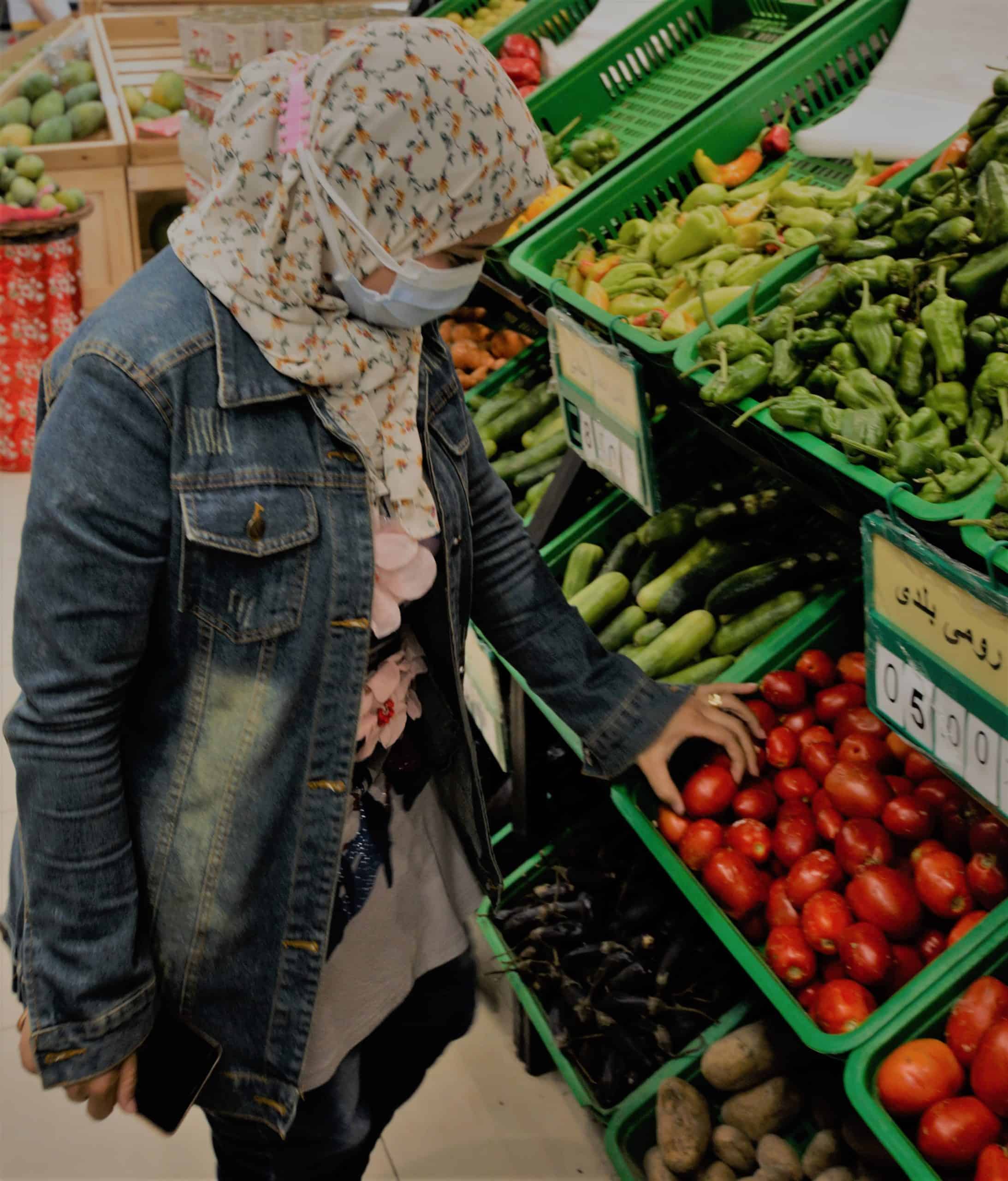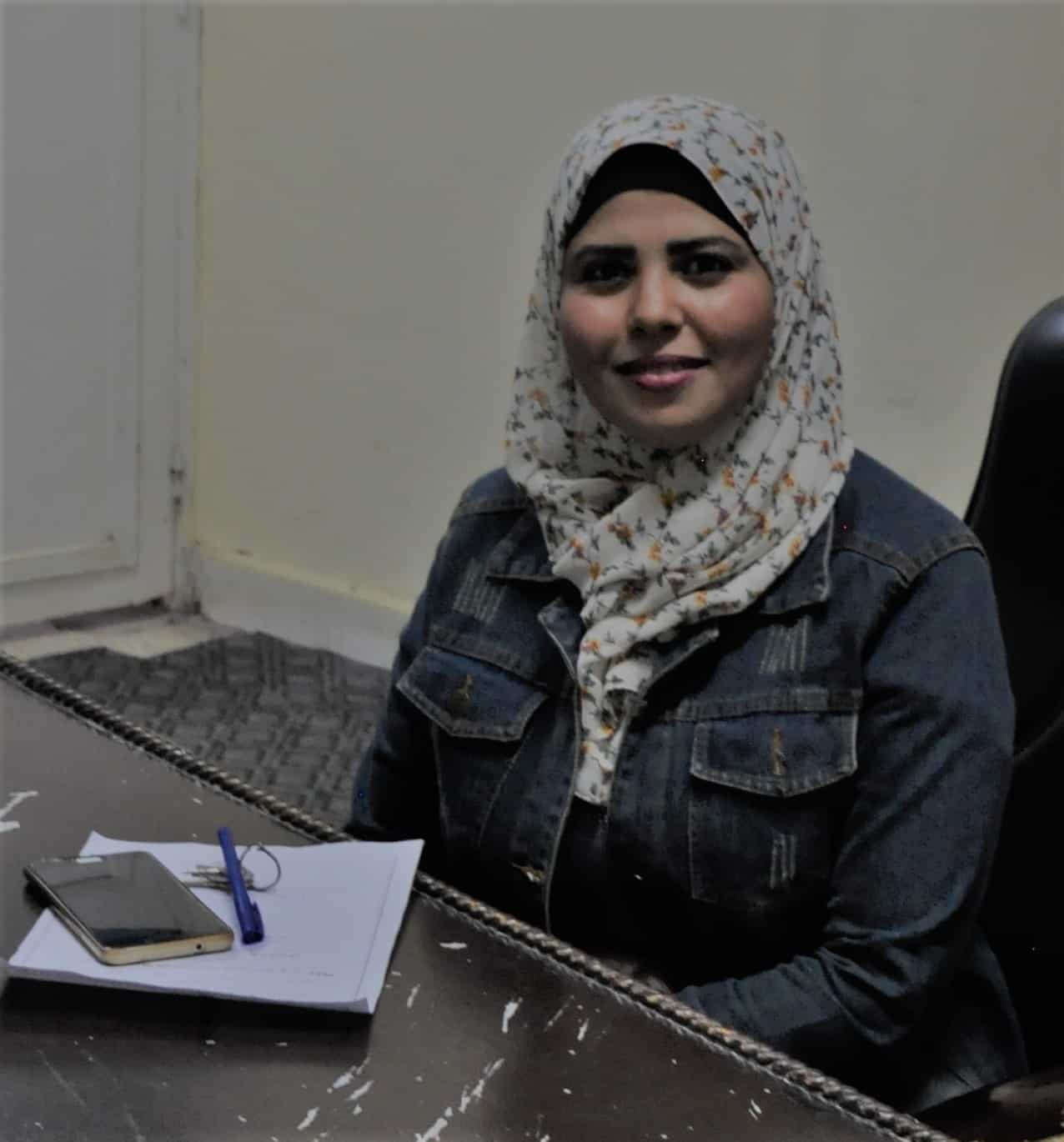The Peer Educator Ripple Effect: Making a difference for Egypt’s female factory workers
September 30th, 2021 | story
“I learned many new skills and information: new behaviors, how to respond to inquiries, and how to accept others who don’t understand – those who don’t have the same awareness – and how to raise their awareness.”
Wafaa Sayed Mohamed is 30 years old, a mother to two-year-old Youssef, and an executive secretary at the Kazareen textile factory.

Wafaa and Youssef live in Fayoum, a vibrant city approximately two hours by car southwest of Cairo, Egypt’s capital. Wafaa has worked at Kazareen for seven years and wants to see her company and her colleagues succeed. She became involved in the USAID Strengthening Egypt Family Planning Program (SEFPP)’s peer educator training course as a means to give back to and uplift her community. “For me, it was very helpful to be closer to people, to give them the necessary information in a simple way, with no boundaries or embarrassment. It is science and the training raised our awareness in this regard,” said Wafaa.
Wafaa now connects with her colleagues on breaks and over lunch, sharing new information she has learned about family planning and reproductive health. Although not trained as a doctor or nurse, Wafaa finds tremendous value in working on issues of family planning and reproductive health. She is motivated to continue educating others because she gets to explore new things every day, building her own knowledge, and passing it on to others.

Wafaa has a bachelors’ degree in commerce and previously worked in human resources. The SEFPP peer educator training not only taught her new information about family planning and reproductive health but also how to engage with her peers compassionately and empathetically. She knows that hesitancies about family planning in her community stem from a lack of awareness and information, and she seizes the opportunity to engage with her peers both in and out of the workplace.

“I am now more aware of health and reproductive health because of the training. Now anyone from my home, neighbors, friends, and of course from the factory, can come to me with questions. I talk with them about the health clinics, doctors, and contraception methods. When a woman is experiencing an issue, I have the right information to guide her.”
SEFPP’s peer-educator program has been offered in eight factories in Qena, Sohag, Asyut, Minya, Beni-Suef, Fayoum, Giza, and Cairo. After completing the training, 71 peer educators have conducted regular family planning and reproductive health education awareness sessions for their peers inside the factories where they work. From January to the end of September 2021, these peer educators conducted awareness sessions reaching several hundred workers.

Wafaa feels fulfilled “seeing an illiterate woman, who doesn’t know what contraception means or the importance of going to the health clinic, become an aware person who knows better.” Investment in peer educator programs, with their ripple-effect impact, has limitless potential to bring both purpose and prosperity to dedicated people like Wafaa and her community in Egypt.
_____________
The USAID-funded Strengthening Egypt’s Family Planning Program (SEFPP) is a five-year (2017–2022) project managed by John Snow, Inc. SEFPP embodies USAID’s commitment to assisting the Government of Egypt to strengthen its family planning and reproductive health services. SEFPP supports the Ministry of Health and Population and National Population Council to address Egypt’s growing population by increasing the use of family planning methods and promoting healthy timing and spacing of pregnancies, leading to a positive change in contraceptive use.
We strive to build lasting relationships to produce better health outcomes for all.